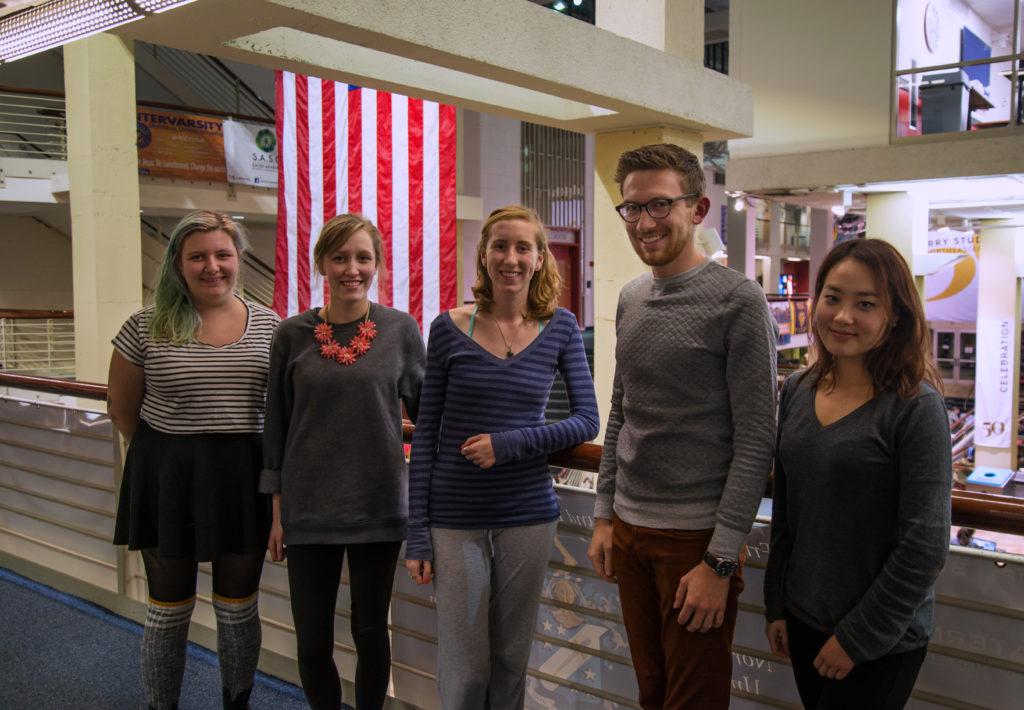By Amanda Hoover, news correspondent
Amid a developing dialogue about sexual assault and a Title IX case filed against the university, Northeastern students have begun pushing the administration to redefine sexual assault in the Code of Student Conduct (CSC).Advocates for the change are hoping the university will provide more educational and supportive services for students while also creating clear guidelines for handling sexual assault and its various sanctions.
Every three years, the Student Government Association (SGA) works with the Office of Student Conduct and Conflict Resolution (O.S.C.C.R.) to review the (CSC), making alterations where deemed necessary as new issues and challenges arise. This year, SGA chose to prioritize sexual assault, forming a committee dedicated to the issue and determined to create a more just definition and policy for students that will clarify the current language many find frustrating.
“There’s a lot of things going on
at colleges with sexual assault,” said Morgan Helfman, a sophomore political science and communication studies major, SGA’s vice president of student affairs and the chair of the sexual assault committee. “Even Northeastern is being reviewed for mishandling their cases, so we just want to make it clearer for students, for faculty, for everyone at the university and make sure that everyone understands what the campus is and that it’s a safe place for everyone.”
“We’re also making sure that the levels and the sanctioning are fair,” she said.
Currently, the CSC places sexual violence, misconduct and assault between a level III and a level I offense, making the consequence for offenders anywhere from probation “to” suspension or expulsion. In some cases, this could be equal to or less severe than alcohol- and drug-related charges. Changes would likely ensure specific punishments for various offenses so that the students on the conduct board have less jurisdiction to interpret violations and their consequences.
“A lot of the people in our committees regularly are already people in student government, whereas these are predominantly people from the community saying, ‘I don’t have anything to do with student government but I want to have a say in this,’” Noah Carville, SGA president, said.
Currently, sexual assault is defined as “the oral, anal or vaginal penetration by an inanimate object, penis, or other bodily part without consent, as defined below” and “the unwanted touching of the intimate body parts of another,” according to the CSC.
“Right now, they’re just very broad definitions,” Allegra Mangione, a sophomore human services and international affairs major and member of NU Sexual Health Advocacy, Resources and Education (SHARE), said. “That means [punishment ranges] anywhere from some kind of probation to being expelled. The student conduct board can choose anything they feel fit. That doesn’t seem fair to anybody, especially if it’s the same offense.”
The committee consists of about 10 students who are working on drafting language before Helfman will present the new policy to O.S.C.C.R. in the near future. After that, O.S.C.C.R. and the legal department will have the chance to amend the policy this spring before it is printed in the 2015-2016 CSC handbooks. Until then, SGA and the sexual assault committee will not know which aspects of their work were passed and which the university cut.
“Even though we have these students who are really thinking critically about this and working on this, there’s no guarantee that any of the work they do is actually going to end up in the student conduct handbook, which is unfortunate,” Mangione said.
After repeated attempts, O.S.C.C.R. could not be reached for comment.
The sexual assault committee has plans for more than just a revision of the CSC.
“We’re also working with the administration on the resources available to students who have been survivors of sexual assault, how the university makes the information available from the outset, during orientation or through ResLife,” Carville said. “Next semester, the committee will focus on promoting and augmenting existing resources such as We Care and the Violence Support, Intervention and Outreach Network (ViSION) to encourage students to seek help and speak out after suffering from sexual assault.”
While SGA works directly with the university, NU SHARE has tried to actively engage and involve students in the issue.
“I think it’s important that we took a more activist route because my concern is that the administration hasn’t really shown that they were willing to talk about or collaborate on these sort of issues, so we thought it would be more beneficial to go straight to the people,” Garrett Bollinger, co-president of NU SHARE, said.
Frustration with the administration and O.S.C.C.R. is not uncommon.
“We’d like O.S.C.C.R. to recognize that sexual assault should be handled differently than other conduct issues, especially just because of how damaging it can be for the victim,”Mangione said. “We need to put professionals who specialize in this kind of thing into the leadership and into the decision-making process and hopefully in the future there will be a system where students will have advocacy and support throughout the whole trial process.”
SGA and student activist groups like NU SHARE may take a few years to change the climate on campus, but they hope they’re laying the groundwork for a more open and responsive system.
“There’s definitely a long way to go before we achieve a perfect world, a perfect campus, but what student activists are doing and what student government is doing is really helping,” Helfman said.
Photo by Arzu Martinez















